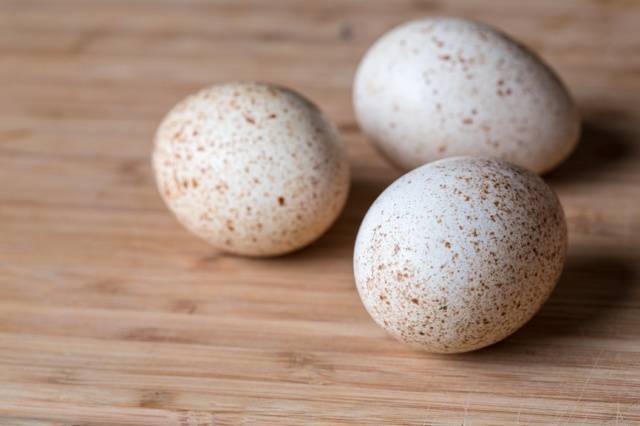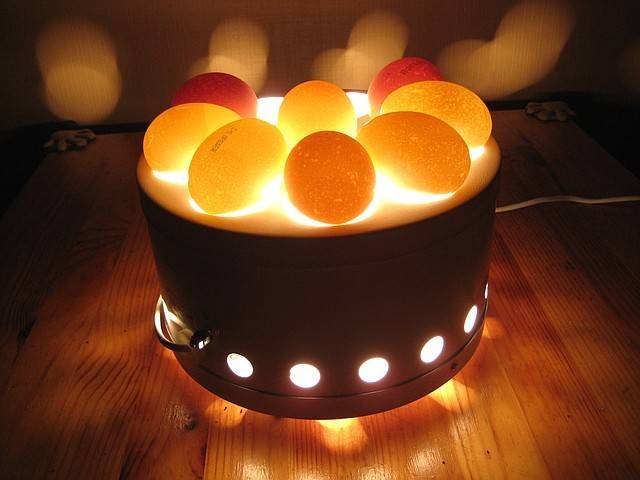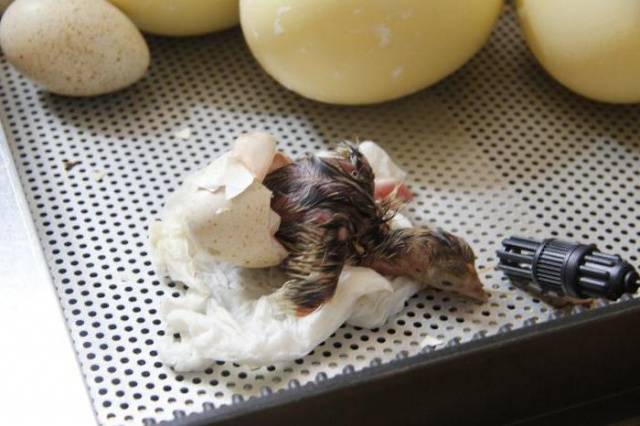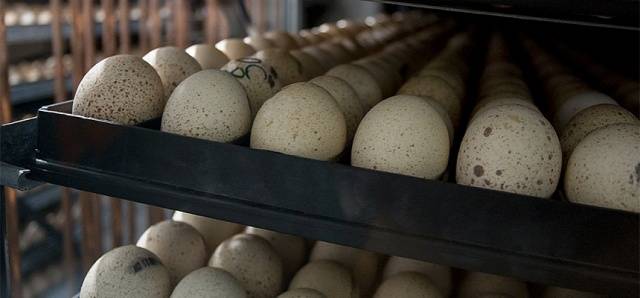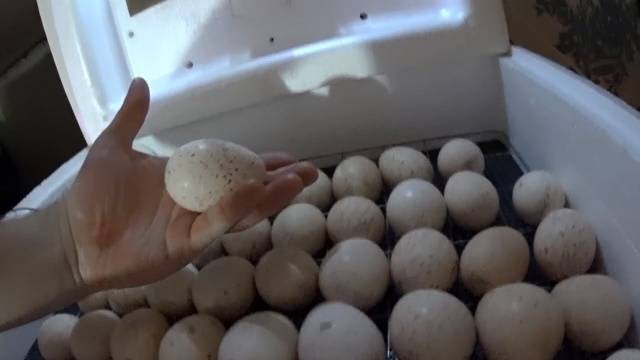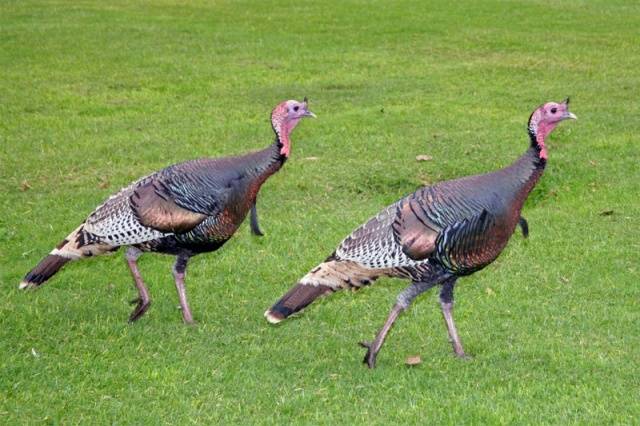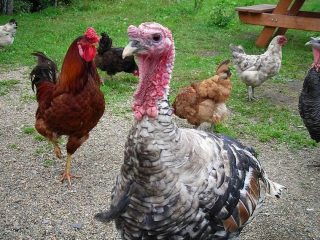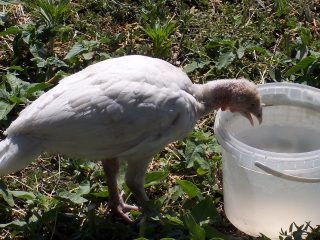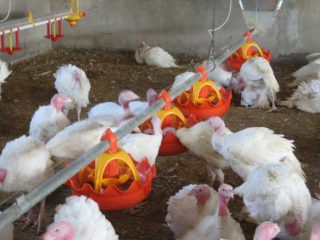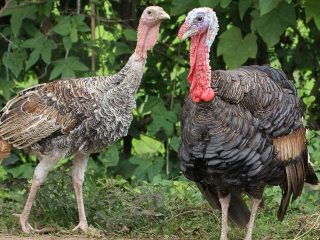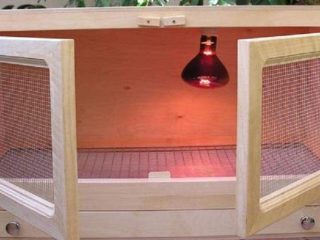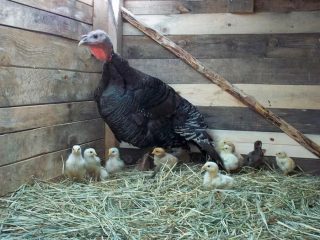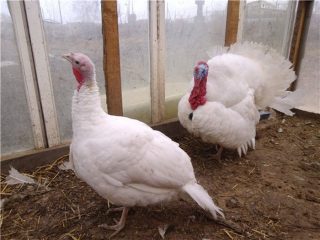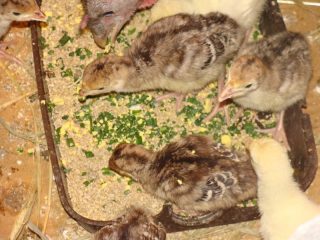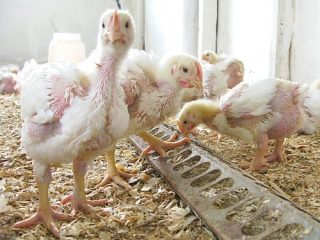Content
Today, many people keep turkeys at home. The topic of incubation is very important for breeders, because despite the similarity of the process for all domesticated birds, it has its own characteristics. Even those who use turkeys to hatch young animals need to know the principle of breeding poultry in an incubator, since this may be needed sooner or later. Let's talk about this in more detail and learn about all the nuances of the process.
Preparation process
First of all, having decided to breed turkey poults through an incubator, they begin to select eggs. Experts advise choosing specimens of the same size. The best eggs are taken from turkeys over 8 months of age. You should not leave them in the nest. As soon as there are more than ten eggs, the female’s maternal instinct may awaken and she will begin to hatch them.
Before placing in the incubator, all specimens must be cleaned (but not washed) of dirt. This must be done carefully so as not to damage them. It is also worth paying attention to growths and defects on the shell. It is better not to place such specimens in an incubator.If they have growths or their shells are very thin, this indicates that there are serious problems in the house. It is better to eliminate diseases in a timely manner, carry out disinfection, and the birds are supplemented with chalk and sprat.
The conditions for selecting and storing material for incubating turkeys are shown in the table below.
Prerequisite | Index |
|---|---|
Temperature | +12 degrees Celsius |
Humidity | Should not exceed 80% |
Storage placement | With the blunt end up, after four days of storage they are turned over |
Maximum shelf life | No more than 10 days |
Disinfection before incubation is not a mandatory process, but recommended by most experts. For this you can use:
- hydrogen peroxide;
- glutex and other special solutions;
- potassium permanganate solution.
Specialized products can be easily found on sale today. Incubation of turkeys with a large number of eggs should be carried out using professional means.
Determination of egg quality
On large farms, hatching eggs are carefully checked. The process of ovoscopy is used for this.
The rules for ovoscopy are:
- it should be visible to the light that the protein has no foreign inclusions and is absolutely transparent;
- the yolk should have clear contours and be located in the middle of the egg;
- the air chamber should always be located at the blunt end;
- When turning the egg, the yolk should move slowly.
If all points are met, such an egg can be considered ideal. It can produce healthy offspring in an incubator.
To learn more about the ovoscopy process, we recommend watching this video:
The hatching of new offspring is a responsible process; incubation regimes are of great importance here.
Incubation process
Turkeys are domestic birds that easily breed their own offspring. However, this process is fraught with some difficulties, which are extremely difficult to solve if you have a large farm. In the place where the turkey hatches its eggs, it is necessary to maintain a certain temperature and humidity, and ensure that the bird is well fed, since it often refuses to leave the nest.
Those who were involved in breeding turkeys noted that their maternal instinct was very developed. Often males also do the incubation. If the farm is large, it is better to select the material in a timely manner and hatch it yourself in an incubator. A heavy turkey will not crush some of the eggs; only high-quality specimens can be selected.
Conditions of the incubation process
In order for the hatching of turkeys not to be spoiled, it is necessary to maintain conditions under which the incubation process will be ideal. First, let's look at the timing of withdrawal.
The incubation period for turkeys is 28 days, it is strictly divided into four stages, the modes of each of them are different:
- initial stage (from 1 to 7 days);
- middle stage (from 8 to 14 days);
- end of the incubation period (from 15 to 25 days);
- withdrawal (26-28 days).
We will tell you about each of the stages in more detail. Here it is important to know the following:
- temperature conditions in the incubator;
- humidity;
- turkey egg turning process;
- Is there a need for cooling?
If at the end the number of healthy turkey poults is 75% or higher of the number of eggs laid in the incubator, it means that all regimes have been followed correctly.
First stage
During the first week of incubation, it is important to maintain high humidity of at least 60%. This mode is used for all non-waterfowl. During this period, it is very important that the air exchange in the incubator is good. Turkey eggs absorb a large amount of oxygen and release much more carbon dioxide when compared to chicken eggs.
For anyone who decides to hatch turkey poults in an incubator, a special table of regimes will help. It is given for each period separately. During the first two weeks, the material is not cooled.
Condition | Stage-appropriate indicator |
|---|---|
Humidity | 60-65% |
Temperature | 37.5-38 degrees Celsius |
Turning eggs | 6-8 times a day |
As for turning eggs, this process is extremely necessary, because the ripening embryo can stick to the shell. At the first stage, turns must be performed at least six times a day.
On the eighth day after the end of this stage, the incubation material is removed and analyzed using the ovoscopy method described earlier. It is important that all specimens have a developed circulatory system of the embryo. If it is not there, then it is simply confiscated. He will not give offspring.
Second week of incubation
The second week also does not require the breeder to cool the eggs. The temperature in the incubator is not reduced, but remains the same. According to many recommendations from professionals, the best temperature for turkey eggs is 37.8 degrees.
Condition | Stage-appropriate indicator |
|---|---|
Humidity | 45-50% |
Temperature | 37.5-38 degrees Celsius |
Turning eggs | 6-8 times a day |
You need to turn the eggs the same way as in the first week. They only reduce the humidity level to 50%.
Third stage
After two weeks, the humidity indicator is again increased to the levels of the first week. Now the cooling process is added to the egg turning procedure. The procedures must be performed daily until the 25th day inclusive.
Condition | Stage-appropriate indicator |
|---|---|
Humidity | 65% |
Temperature | 37.5 degrees Celsius |
Turning eggs | 4 times a day |
Cooling process | 10-15 minutes |
Cooling is a special procedure. It is carried out for the reason that by this time the embryos themselves begin to produce heat. To check if the eggs are cool enough, you need to hold them to your cheek or eyelid. If it is refrigerated, it will be neither warm nor cold. After this, they are again placed in the incubator. There will be very little time left before withdrawal. Very soon the turkey eggs will hatch.
Conclusion
The first turkey chick can hatch as early as the 26th day of the incubation period. In the last three days, you do not need to turn the eggs or refrigerate them. On the 27th day, when the chicks hatch, you need to carefully monitor the ventilation in the incubator. It is important that the chicks have enough oxygen.
Condition | Stage-appropriate indicator |
|---|---|
Humidity | up to 70% |
Temperature | 37 degrees Celsius |
Turning eggs | No |
When most of the turkeys have hatched, it is better to increase the temperature slightly (by about half a degree). The conclusion is the most important stage and must be approached responsibly.
If you decide to have turkeys for the first time, and there is simply no one to lay eggs, you can purchase hatching eggs. They can be found on sale. There are specialized poultry farms, where a beginner can be advised on issues of breeding turkeys.Whatever breeding method is ultimately chosen, using an incubator is a reliable method of producing healthy offspring.
